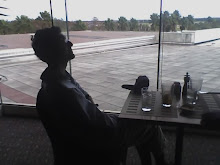When you're in a political campaign, and you have an opponent or two, a reasonable expectation is that you and your opponent(s) will have a debate.
Debates help voters by letting them know where you stand on issues they care about, and how your stances are similar to or different from other candidates. They show you not as an abstract name in a newspaper campaign story, but as a face, a voice, a physical presence. In a nation whose government is based on the exchange of ideas, debates in campaigns for elected office make sense.
Unfortunately, one of our longer-serving elected officials, Sen. John McCain of Arizona, seems to think he is above such practices. McCain has refused to debate J.D. Hayworth, his opponent in this year's Republican primary, the New York Times reports.
The senator and 2008 GOP presidential nominee has been short on explanations, other than telling one voter, "I have a day job," and his campaign staff has also proven reticent. One might guess that McCain's resistance to debate stems from the vigor of his opponent, a man with a radio and TV background who has made the campaign competitive. The senator may just dislike debates, period: He also tried to back out of a presidential debate with his then-colleague in the Senate, Barack Obama, in 2008, claiming to be preoccupied by the economic crisis.
I'm no fan of Hayworth, whose extreme views make him as big of a snake as the diamondbacks that swarm Arizona's deserts, but McCain looks pretty bad himself with his no-debate decision. It suggests he has no confidence in his ability to defend his record in public, and an unseemly fear of his opponent that ill befits McCain, a man who survived years of imprisonment during the Vietnam War.
Sadly, McCain isn't alone in dissing debates these days. My home state of Massachusetts has provided several examples of how to keep debates from the public eye. In this year's special election for the late Ted Kennedy's Senate seat, the three candidates -- Republican Scott Brown, Democrat Martha Coakley and independent Joseph Kennedy -- held one of their debates not on a major TV network, but on ... a Springfield public-television station. (It was rebroadcast on WGBH.) More recently, the three hopefuls for governor in the Bay State -- Democrat incumbent Deval Patrick, GOP challenger Charlie Baker and independent Tim Cahill -- debated for the first time ... on a radio station at 7 a.m. last Wednesday. When you hold debates as people are still drinking their morning coffee or commuting to work, or on stations most state viewers can’t watch, it’s as good as staging no debates at all.
What, exactly, makes debates so scary for politicians? They fret so much about mistakes they might make, but they don’t remember that debates can help them as well. For all his faults, Ted Kennedy understood this. In 1994, he was the one being challenged for a Senate seat by a younger, more telegenic opponent, Mitt Romney, before his inspired performance in a debate gave Kennedy the momentum he needed to win.
It's time for politicians to start taking debates more seriously. Talk may be cheap, but it's priceless for voters seeking to make a campaign decision. McCain needs to realize this.
Subscribe to:
Post Comments (Atom)




No comments:
Post a Comment